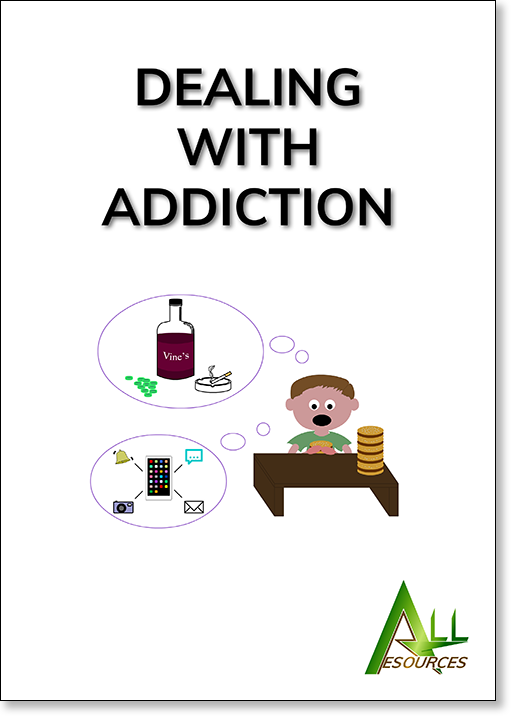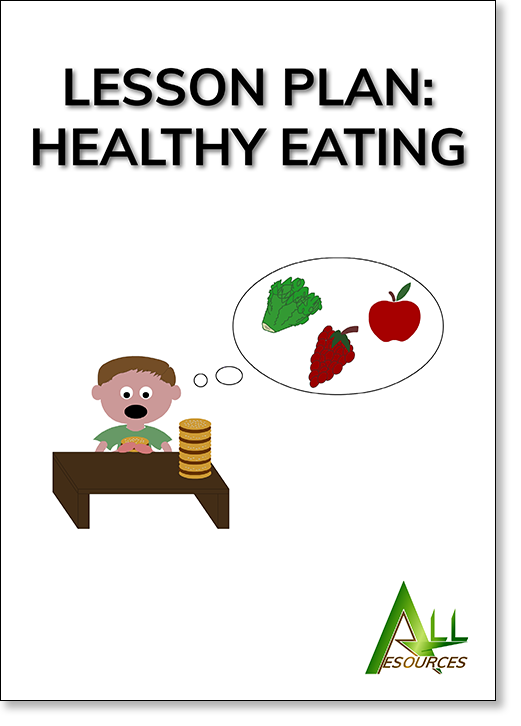Food Addiction and Young People

Dealing with Addiction
Providing the facts about substance abuse, gambling, gaming & food addiction as well as how to help people recover from addiction.
- Age range: 12 years and upwards
- Category: Schools
- Last revised: 2021
- Pages: 83
- Illustrated throughout
Hard copy: £35.99 add to basket
Food Addiction Lesson Plans

Healthy Eating
This lesson plan covers healthy eating, different food types and how to develop a healthy diet.
- Age range: 12 years and upwards
- Category: Lesson plan
- Last revised: 2021
- Pages: 15
- Duration: 55 mins – 1 hour
Hard copy: £10.99 add to basket
It may be surprising to think about food as an addiction, especially if it relates to binge eating in childhood. While studies on the prevalence of eating problems in childhood are rare, surveys suggest that between 20% and 25% of overweight or obese children are addicted to food, with the childhood eating disorder typically emerging between the ages of 6 and 12 years. In many cases there is a slowdown in a child’s normal growth alongside an increase in weight which is too much for their age and height. Research has also found a link between food addiction in children and childhood obesity.
Compulsive eating has nothing to do with hunger. It is a habit that usually develops in response to stress-related conditions, depression, anxiety, low confidence or even boredom. So how can a parent help a child if they believe they are developing an addiction to food? Some of the following suggestions may help:
- Do not use food as a reward for good behaviour.
- Make sure you allow treats such as sweets and ice cream — but only after they have eaten a balanced meal.
- Provide plenty of water — this should always be the first choice when providing drinks. There is no reason to provide sweet, sugary fizzy drinks.
- Make sure your child has access to healthy snacks and a variety of fruits and vegetables.
If your child is addicted to food or has a food anxiety, they may need to see a GP who can refer them to a counsellor or therapist. This will ensure they are given practical assistance and support to help them develop ways to cope with the negative feelings that lead to overeating.



